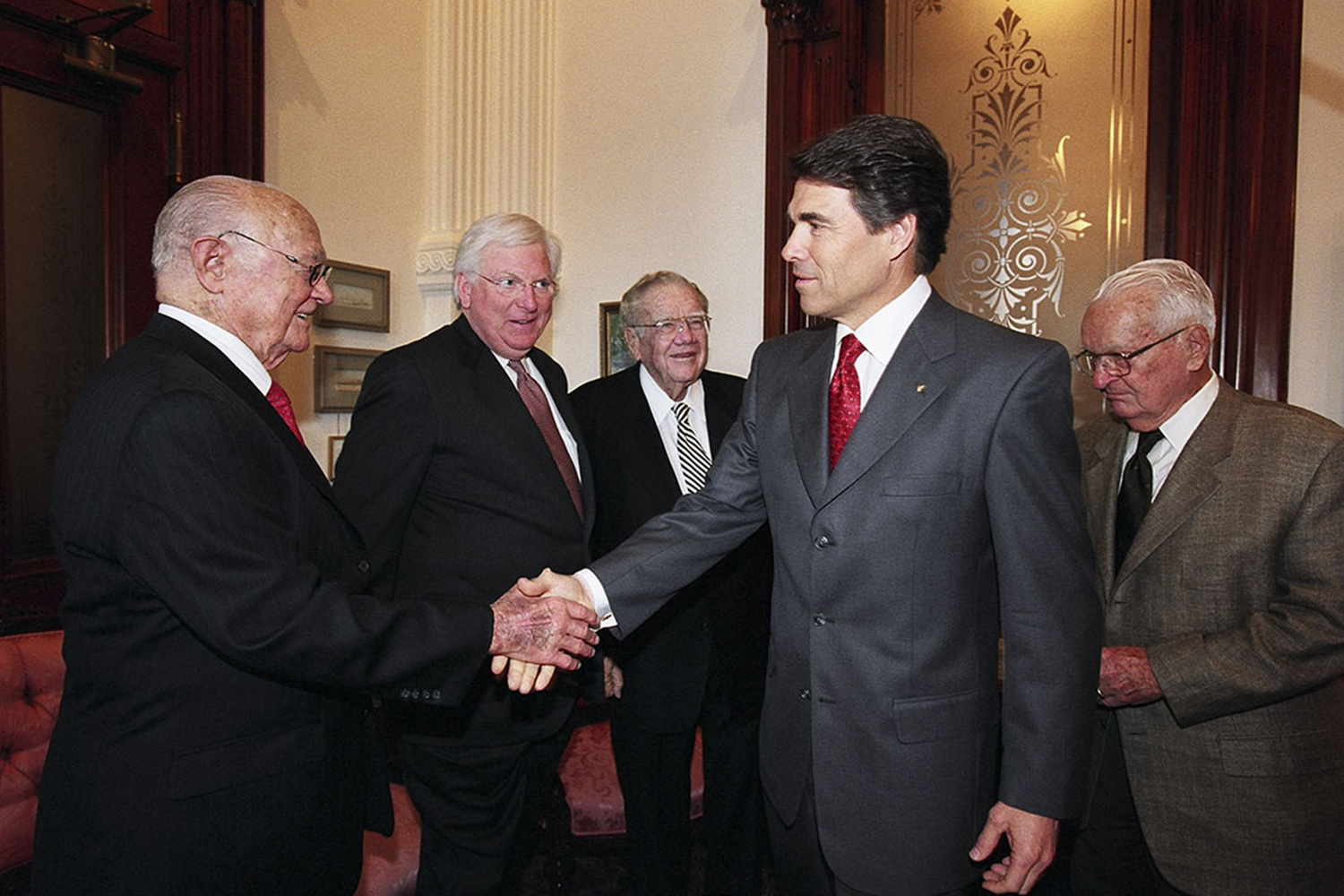Texas Republican leaders are pushing the state to become the latest that bars paycheck deductions for certain public employees to cover membership dues for labor unions or associations.
The measure, proponents say, is needed to kick the government out of the dues-collecting process — but critics say the effort is aimed at weakening the organization of unions and is part of a nationwide trend that has produced mixed results, according to key players in those states.
Texas Gov. Greg Abbott for months has made clear that ending dues deductions is one of his priorities, first highlighting the issue during his State of the State address in January, and, when the measure failed during this year's regular session, including it among his 20-item agenda for the 30-day special session that began on July 18.
Most recently, North Carolina approved a law last month containing a provision to eliminate the ability for farm workers in the state to have dues deducted from paychecks. The main union group set to be impacted by the new law is already planning legal action.
“We’re challenging it in court as discrimination against farm workers,” said Cat Crowe with the Farmer Labor Organizing Committee, an agriculture union in North Carolina that’s a branch of the AFL-CIO. Crowe added it would be especially challenging to collect dues through other methods — such as bank drafts or credit cards — for a 10,000-member group they contracted with that mainly consisted of workers traveling on a visa between Mexico and the U.S. and who didn't have either of those two things.
North Carolina, like Texas, is one of 28 “right-to-work” states in the nation — which means employees aren’t required to pay dues or join unions — and Jimmy Dixon, the Republican member of the state's General Assembly who carried the provision said if unions wanted to soften any impact the new law may have on membership, they needed to up their marketing strategy and convince people how they’d benefit from joining one.
“Obviously the reason unions want this is we become their accountant, bookkeeper and collector,” he said.
Supporters of the North Carolina law are hoping for a similar outcome as Wisconsin, which drew national attention in 2011 when Gov. Scott Walker passed a set of wide-ranging labor reforms — including one that barred paycheck deductions. Union membership in the state has since declined, but it's unclear how much the deduction provision played a role.
In Michigan, the governor signed a bill that ended payroll deductions for public school employees in 2012 — the year before the state passed a right-to-work law — but it’s unclear how that specific measure impacted union membership since it went into effect amid other labor reforms.
David Heckner, the state chapter’s president of the American Federation of Teachers — a branch of the AFL-CIO — said the measure had little impact on the group’s membership, even though around 98 percent of members were enrolled in paycheck deductions at the time.
“We lost an insignificant number of members in the K-12 world,” said Heckner, adding most members now funneled their dues through bank drafts or credit cards.
A similar storyline played out in Oklahoma, when the governor signed a bill like the one Michigan had passed a few years prior. But the law never really went into effect, teacher groups in the state told the Tribune, because broad language in the measure made it unenforceable.
“It just kinda faded away,” said Doug Folks, a communications specialist for the Oklahoma Education Association, adding that state lawmakers haven’t appeared to make public attempts to revive the measure since.
Joe Slater, a law professor at the University of Toledo Law School, said district courts usually ruled with unions when they challenge paycheck deduction laws — but federal courts of appeal tended to be more deferential to state legislatures, often ruling that the state had unlimited discretion to differentiate among groups, so long as it wasn’t based on gender, race or religion.
Alabama passed a law in 2011 ending payroll dues for school employees, but the measure spent years tied up in court after the Alabama Education Association challenged it. A U.S. district judge ruled with the association — blocking the measure from taking effect — but the state appealed and won in 2014. The law then went into effect, and union membership slightly declined afterward, according to federal data.
“What unions have to argue is that there was no rational reason for this distinction,” Slater said. He added that unions in these circumstances typically filed a combination of First Amendment and Equal Protection claims.
Last week, the Texas Senate passed Senate Bill 7 by state Sen. Bryan Hughes, R-Mineola, along a 19-12 vote, with all Democrats and one Republican — state Sen. Robert Nichols, R-Jacksonville, voting against it. The bill would prohibit certain public employees, such as teachers and corrections officers, from using payroll deductions to pay their union or association dues. It would exempt police officers, firefighters, emergency first responders and charitable organizations — a carve-out that's drawn pushback not only from teacher associations but from law enforcement groups that benefit from the exemption.
The House hasn’t yet acted on the legislation — and with less than two weeks left in the special session, it's in doubt whether the lower chamber will move the bill before the clock runs out. State Rep. Byron Cook, R-Corsicana, chairman of the committee that normally handles such bills, had qualms with a similar measure in 2015, and legislation during the regular session that ended in May was never presented in his committee. Cook's office did not respond to the Tribune's request for comment.




